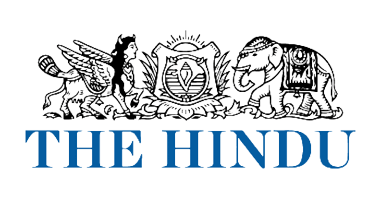THE HINDU 05.05.2025 :
GS1 – Indian Society, History, and Geography
1. Caste Census in Bihar – Social Empowerment and Indian Society
- News Context: Mention of Nitish Kumar’s political move linking to caste-based data in Bihar.
- Syllabus Link: Salient features of Indian Society; Role of Caste in Social Empowerment.
- In-depth Notes:
- Caste-based census data has sparked a national conversation around social justice, equity, and reservation policy.
- Bihar’s move aligns with the demand for evidence-based policymaking in welfare distribution.
- Raises debates on sub-categorization within OBCs, horizontal vs vertical reservation, and affirmative action.
- Implications for interstate equity, federalism, and how social structures shape public policy.
GS2 – Polity, Governance, International Relations
1. India-Nepal Border Dynamics – IR and Internal Security
- News Context: Discussion of border tensions and new infrastructural projects.
- Syllabus Link: India and its neighbourhood – relations; Bilateral issues; Border management.
- In-depth Notes:
- Border road development near Kalapani-Lipulekh region reflects India’s strategic infrastructure push.
- Nepal’s objections must be seen in context of territorial sovereignty and diplomacy.
- Use this to analyze India’s neighborhood policy, the role of historical treaties (1816 Sugauli Treaty), and growing influence of China in Nepal.
- Examine confidence-building mechanisms (CBMs) and the role of diplomacy in resolving border disputes.
2. Supreme Court on Bail Guidelines – Judiciary and Governance
- News Context: Article on the SC reiterating the importance of bail as a norm.
- Syllabus Link: Separation of powers; Judiciary; Governance and transparency.
- In-depth Notes:
- The SC emphasized the presumption of innocence and reiterated that bail should be the norm, not the exception.
- It raised concerns on undertrials, human rights violations, and judicial delays.
- Supports discourse on judicial reforms, pendency of cases, and access to justice for marginalized.
- Also ties into Article 21 (Right to Life and Liberty).
3. UCC and Minority Rights – Secularism and Indian Constitution
- News Context: Political debates on Uniform Civil Code (UCC).
- Syllabus Link: Indian Constitution—features, amendments, significant provisions.
- In-depth Notes:
- UCC aims for uniformity in personal laws but remains controversial due to implications on religious freedom (Art 25-28) and minority rights.
- Important to explore Directive Principles vs Fundamental Rights (Art 44 vs Art 25).
- Useful in discussing secularism, federalism, and cultural autonomy.
- Examine Law Commission’s past reports and contemporary political context.
GS3 – Economy, Environment, Security, Science & Tech
1. Heatwave Management in North India – Disaster Management and Climate Change
- News Context: Record temperatures in Delhi, Rajasthan; advisories issued.
- Syllabus Link: Disaster management; Climate change; Environmental issues.
- In-depth Notes:
- Frequent and intense heatwaves show a clear link to climate change and urban heat island effect.
- Discuss NDMA guidelines on heatwave action plans, and role of local governance (urban bodies).
- Impact on vulnerable populations, agriculture, health systems, and economic productivity.
- Link to India’s climate adaptation policies under the National Action Plan on Climate Change (NAPCC).
2. RBI Monetary Policy Outlook – Indian Economy and Inflation
- News Context: Market watching for signs of RBI rate cuts amid inflation concerns.
- Syllabus Link: Indian Economy and issues relating to planning, growth, development and inflation.
- In-depth Notes:
- RBI uses monetary policy tools (repo, reverse repo, CRR, SLR) to control inflation and boost growth.
- Recent stance reflects caution over core inflation, global oil prices, and rupee stability.
- Tie this with MPC (Monetary Policy Committee) functioning and challenges in balancing inflation targeting with growth.
- Role of supply-side bottlenecks, monsoon forecast, and global uncertainties (like oil, Fed rate) in determining India’s macroeconomic policy.
3. India’s Semiconductor Mission – Technology and Strategic Autonomy
- News Context: Mention of Vedanta and Tata pushing ahead with chip plans.
- Syllabus Link: Science and Technology developments and their applications; Industrial growth.
- In-depth Notes:
- Semiconductor manufacturing is key for strategic technology autonomy.
- India aims to reduce import dependence and position itself in global supply chains.
- Analyze PLI scheme, MeitY’s India Semiconductor Mission, and challenges of capital, expertise, infrastructure.
- Link with national security (chips in defense), and global geopolitics (US-China chip war).
GS4 – Ethics, Integrity, and Aptitude
1. Public Officials’ Accountability in Relief Work – Ethics in Public Service
- News Context: Bihar’s CM emphasizing fair relief distribution for flood victims.
- Syllabus Link: Public/Civil service values and Ethics in public administration.
- In-depth Notes:
- Ethical governance includes fairness, responsiveness, and empathy during disaster relief.
- Case study-worthy instance where bureaucratic accountability intersects with ethical challenges of transparency and efficiency.
- Discuss importance of ethical decision-making, conflict of interest, and responsiveness to vulnerable communities.
2. Judiciary and Moral Responsibility – SC Bail Verdict
- News Context: Emphasis on human dignity and liberty.
- Syllabus Link: Ethics in judiciary; Probity in governance.
- In-depth Notes:
- Judges have a moral obligation beyond legalism—protecting dignity, liberty, and fairness.
- Highlights ethical dilemmas in judicial delay, denial of bail, and undertrial injustice.
- Role of judicial conscience and empathy in legal decisions.



